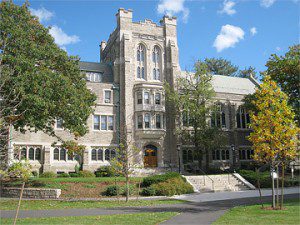A headline in yesterday’s New York Times reads: “Muslims are Loyal to U.S. and Hopeful, Poll Finds.” In this article, Laurie Goodstein reports on the results of a recent Gallup survey of 2,482 Americans, including 475 Muslims. You can find the whole Gallup report here.
Some of the results of the survey are predictably discouraging. For example, 48% of Muslims reported that they had experienced racial or religious discrimination in the previous year. This is more than any other religious group in America. I wish Gallup had asked separately about racial and religious discrimination, however. It expect that among the 48%, a significant percentage experienced discrimination because of their race, not their religion. This isn’t good, of course. But the 48% number might overstate prejudice against Muslims because of their religion. Moreover, it is worth noting that 52% of Muslims in America did not experience racial or religious discrimination. This number is unacceptably low, but it isn’t as low as I might have feared.
Much of what Gallup found confounds common expectations of Muslims in the U.S. Gallup begins the executive summary of its report in this way:
In the past two years, the percentage of Muslim Americans considered “thriving” has increased more than that of any other major American religious group.
While they continue to experience some perceived bias, both in their interactions with other Americans and in their exchanges with law enforcement, Muslim Americans are satisfied with their current lives and are more optimistic than other faith groups that things are getting better.
Would you have guessed this? There are other fascinating findings as well. Here are some of Gallup’s subheads:
Muslim Americans Rate “Life in Five Years” More Highly Than Do Other Religious Groups
Muslim Americans as Likely as Other Faith Groups to Be Thriving
Muslim Americans Are More Positive About National Economic Conditions
Muslim Americans Are Most Likely to Have Confidence in Honesty of Elections
Muslim Americans Are Most Likely to Reject Violent Individual Attacks on Civilians
Muslim Americans, Those With No Religion, and Jewish Americans Are More Likely to Believe Muslims Have No Sympathy for Al Qaeda
Nearly All Muslim Americans Say Their Faith Group Is “Loyal” to U.S.
Muslim Americans Identify With the United States and Their Faith Equally

The Gallup survey suggests that the vast majority of Muslims in America are very much part of the mainstream. This fits with the message I heard at a panel discussion in Washington DC last week. On Thursday evening, July 28, the Newseum hosted a conversation with four Muslim Americans, including Congressman Keith Ellison. He, along with a lawyer/playwright, a filmmaker, and an educator emphasized the fact that their stories are essentially American, different in details, but basically like the stories of other Americans. All of the participants strongly communicated their appreciation for and dedication to the United States.
For Americans who yearn for a “more perfect union” in our country, and for American citizens who are fearful of Muslims, the Gallup survey and the Washington panel offer good news. This does not mean, however, that all is well when it comes to the relationship between Muslims throughout the world and the United States. A couple of years ago, Gallup published an international survey of Muslims. It found that only 7% are radicalized, defined as having a negative view of the United States and believing that the 9/11 attacks were completely justified (download PDF here). Yet, given that there are 1.3 billion Muslims in the world, the existence of 91 million radicalized Muslims in an unsettling problem. Nevertheless, it would be wrong for us to regard the majority of Muslims as if they were among this radicalized minority. And it would be even more erroneous to ignore the fact that American Muslims are positive, patriotic, non-violent, active contributors to American society.











